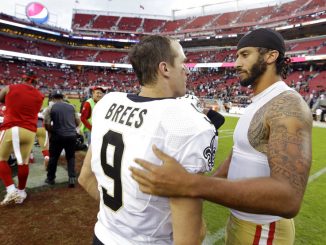RALEIGH — Television shows or sporting events get canceled all the time for a variety of reasons, but in the last few years, some cancelations have been the result of coordinated campaigns based on hyper-political correctness.
The phenomenon known as “cancel culture” has swept from state to state and country to country for a number of years now.
Cancel culture is an aggressive form of public shaming where a person, group, company or even a product is set upon by an internet mob for having committed some offense, usually highly-subjective nature. Cancel culture can also involve what is known as “de-platforming,” where a website, venue or hosting entity is pressured to drop a user or cancel a scheduled entertainer or invited speaker.
Cancel culture campaigns have often targeted conservatives, such as calling for the firing of conservative commentators Laura Ingraham and Rush Limbaugh.
But it’s not just conservatives. Cancel culture has also set its eyes on the progressives and iconic figures that were off-limits in the past. Recently cancel culture even tried to come for Gandhi over his past views on sexuality and race.
In the true spirit of “what goes around, comes around,” cancel culture has taken down those who were once doing the taking down. Such was the case with Des Moines Register reporter Aaron Calvin.
Calvin exposed racist tweets by a man named Carson King, a beer fan who had received millions in donations from strangers after a joke plea for beer money went viral. King donated the money to charity, but after the tweets surfaced, he was forced to apologize and became the object of public ridicule.
King was only 16 years old when he made those tweets, and backlash ensued. The reporter, who was once hailed for exposing King, was now the target of internet ire. Statements made by Calvin were exposed, including a racial slur and the mocking of same-sex marriage and domestic abuse. Calvin was subsequently fired.
Cancel culture is not just a phenomenon happening in other parts of the country — it’s happening in North Carolina.
The probation for the Stanly County cheerleaders over a Trump sign, the destruction of Confederate statues, or Rep. Duane Hall’s ouster as a casualty of the #MeToo movement can all be considered forms of cancel culture.
In 2017, Charlotte City Councilwoman Dimple Amjera said in a television interview that Trump supporters have “no place” in the Charlotte government. The following year, the Durham City Council attempted to deplatform Canadian professor Jordan Peterson from his show at DPAC and passed a resolution to block Durham police from training with Israel.
In June of this year, Durham City Councilwoman and Mayor Pro-Tem Jillian Johnson, in a now-deleted tweet, took aim at local area companies doing business with the Customs and Border Patrol.
But North Carolina is unique, as the state had a front-row seat to the emergence of cancel culture during the fight over House Bill 2, the bill which blocked a Charlotte ordinance that dismantled sex-segregated bathrooms for men and women and created new requirements for government contractors.
And what goes around has come around for the NBA after pulling the All-Star game from Charlotte in July 2016 over HB2.
While the NBA was willing to hurt the Charlotte economy to punish the state over House Bill 2, the NBA was not willing to punish China for its treatment of the citizens in Hong Kong. The result has been calls for the NBA to be boycotted, for players to be fired and for the NBA as a whole to apologize for their defense of Communist China.
In a letter to the NBA Commissioner Adam Silver, Missouri Senator Josh Hawley called out the league for “kowtowing to the demands of one of the world’s most brutal regimes in the pursuit of profit.”
Liberal comedian Ellen DeGeneres was recently targeted by activists after she was seen at a Dallas Cowboys game appearing friendly with former President George W. Bush. Responding to the ridicule, DeGeneres said on her television show, “We’re all different. And I think that we’ve forgotten that that’s OK that we’re all different.”
She pushed back that just because she disagrees with someone doesn’t mean she can’t be friends with them. “When I say be kind to one another, I don’t mean be kind to the people who think the same way you do. I mean be kind to everyone,” she said.
While DeGeneres took the high ground in response to the cancel culture mob, fellow liberal Joy Behar, co-host of ABC’s “The View,” said she couldn’t support being friendly with Bush. “So it’s not only about disagreeing with somebody, which I certainly understand … It’s more than that,” she said. “I always said I didn’t want to get to know George W. Bush because I knew I would like him. I knew I would because he seems like a likable kind of guy.”
With cancel culture in full swing, former President Barack Obama has decided to weigh in, calling out “woke” activists.
“This idea of purity and you’re never compromised and you’re always politically woke, and all that stuff, you should get over that quickly,” Obama said. “The world is messy. There are ambiguities. People who do really good stuff have flaws. People who you are fighting may love their kids and share certain things with you.”
Obama went on to criticize cancel culture on college campuses and those who participate in constant online outrage saying “That’s not activism. That’s not bringing about change.”


